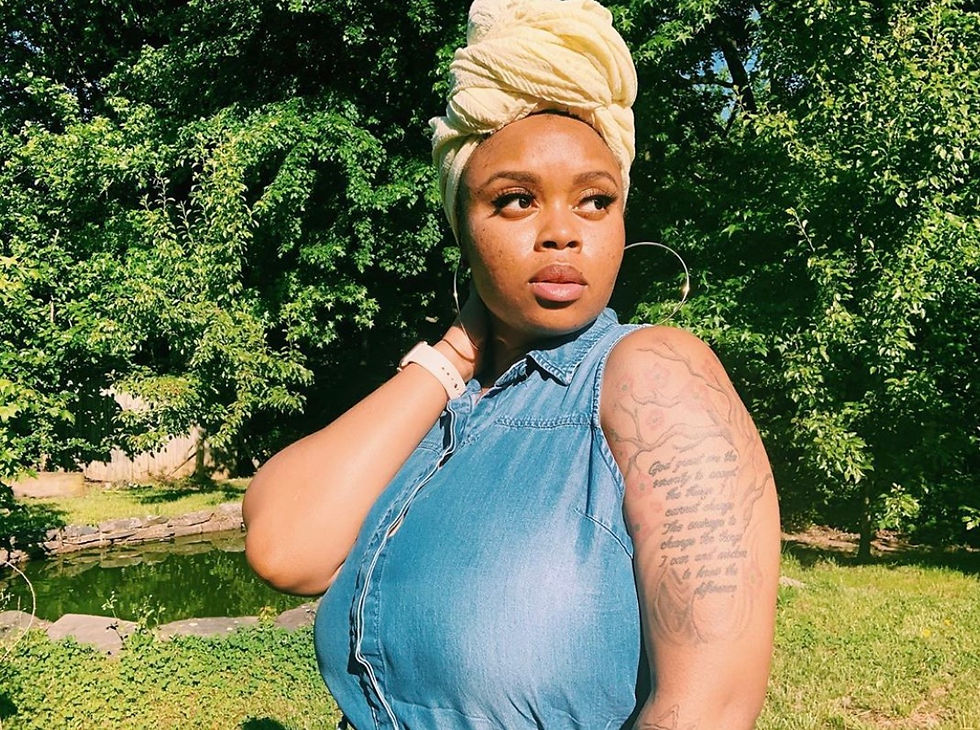Battling Multiple Sclerosis as an African American Woman in America
- Lesley Michelle
- Jul 7, 2020
- 4 min read
Updated: Jul 23, 2020
by Yuri Legynd

As an African American woman learning that you have a debilitating disease at 25 was earth shattering. I was still riding the high of being the first in my family to graduate from college and land my first salary paying job. Anything and everything went through my mind. “My life is over”, “ Am I dying?”, or “I have multiple- what?” I didn’t know much about the disease let alone anyone with it. After leaving the neurologist’s office with just a pamphlet I felt deflated about my future. I went straight to google and YouTube and typed in “Multiple Sclerosis” to see if there was anyone else out there with this disease. To my disappointment, all I found was information about old white people battling the disease, people seriously disabled, or wheelchair bound. The few people that were African American were Montel Jordan and Tamia the singer. I was disheartened to find out that not many people looked like me or were young and thriving with the disease. It crushed my world and I became seriously depressed.
Unfortunately, in our community, health and diseases aren’t really talked about. It’s almost like a shameful thing to show or to acknowledge you have a flaw. When I was diagnosed, my MRI at the time showed several large lesions on my brain. Some were old and some were new. What was even more horrifying was that I had been sick for some time but no one, not even my doctors were able to detect it until it was too late. Throughout my teenage and early adult years I had experienced blackouts, pain in my body, hospital visits, with a plethora of symptoms that no one checked, not even me. The days when I collapsed in the mall or at school. I just chalked it up to being dehydrated or just really tired. The days when I felt numbness and tingling throughout my body, I chalked it up to “Oh it's nothing” or “I’m okay”. As a black woman that is how I was conditioned to think. When something happens to you, you are not allowed to dwell over it, make a big fuss over it, or stop your hustle because of it. You have to keep moving. You have to keep pushing because there are far more pressing matters going on in your life than acknowledging your health. You’re so busy trying to prove to yourself and the world that you are more than a statistic. As a first-generation Jamaican American, I was trying to make my parents proud because they didn’t have the same opportunities growing up. You are trying to overcome poverty, prove your intelligence, and keep your head above water. You push yourself so hard to the point where being sick is the only way your body can force you to relax. At the time I was burning out and not realizing that something neurologically was happening to my brain and body.
After being diagnosed my fears were heightened. I was dealing with not being heard from the doctors. I was being treated in a dismissive manner like they didn’t believe me when I said I was in pain. One of the many symptoms I deal with is pain and brain fog. These mostly male non-black neurologists knew this yet they still rattled off questions like I can really think clearly with everything that was going on inside of my head and body. I often had to bring someone with me to be heard or taken seriously. I often hear irritation and frustration in the doctors' voice and I wonder to myself is this how they treat everyone? I didn't even feel comfortable asking them any questions. I didn’t know anyone with this disease to ask questions or receive advice from. I felt like I had to overcome this new and scary ordeal without any guidance. Like many black women, I had to figure it out and keep pushing because I had no other choice. Balancing work, grad school and my health became overwhelming and my self-esteem was at an all-time low. All I could think was,” who's going to love a sick person?” “Will I ever have kids”, “How can I fix this”?” What does my future really look like”?
I say this all to say that in the future I would like to see more discussions about health in black communities. We need to educate our people about the many diseases out there and the effects they have on the body. We need to teach about healthy lifestyles and eating habits. We also need to teach black women how to care for ourselves. It's deeper than a “self-care Sunday” with the girls. Although that helps, we need to teach about the whole body and how to have balance in life. Circumstances often prevent us from taking a breather but mindfulness, nutrition, and exercise is vital to our overall health. We need more representation and opportunities to guide one another through this process. Once I started to talk about what I was going through, the community I was looking for found me instead. I wasn't alone anymore and that felt amazing. Having Multiple Sclerosis has taken away a lot of things in my life but sharing my story has made space for so much more to come.





Comments